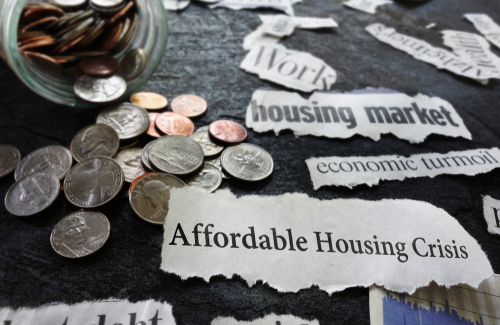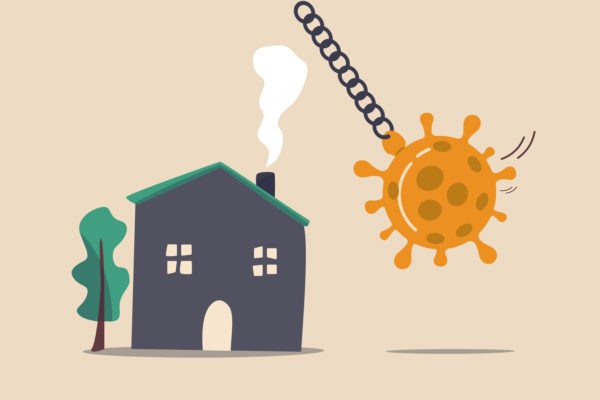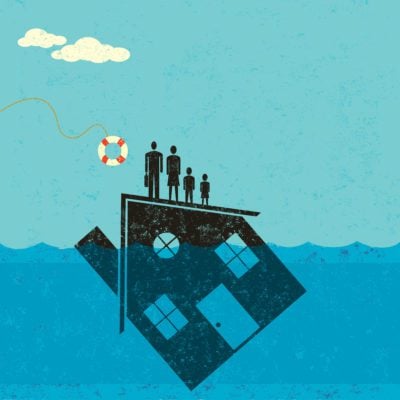
The effects of the COVID housing crisis will be felt in the rental industry for years to come. While new legislation protected tenants from unpaid rent evictions, landlords with non-paying tenants found little relief or sympathy for their own financial wellbeing. As current orders are set to expire, the day of reckoning is coming.
So, what will happen when the eviction moratorium ends? How will this change the housing crisis moving forward? Join us below as we delve into what the current orders state and what landlords and tenants can expect moving forward.
What is the Current Eviction Moratorium?
When initially enacted in September 2020, the eviction moratorium in Baltimore and across the country set out to protect tenants unable to pay their rent from eviction during the pandemic. As the pandemic drug on, the CDC orders were extended several times. That said, the current orders are set to expire on June 30, 2021. Let’s review some key considerations regarding what these orders state below.

Who Does the Eviction Moratorium Protect?
Tenants need to understand that even if eligible for protection from eviction, it does not waive their obligations under the lease. So, any back rent still needs to be paid to the landlord or property management firm. Furthermore, it does not waive any fees, penalties, or interest. Also, to qualify, all adults on the lease must submit a Declaration Form to their landlord and possibly the courts that states the following criteria applies –
- Tenants did their best to obtain any available government assistance for rent or housing.
- Taxable income in 2020 was less than $99,000 as an individual or $198,000 if filing a joint tax return, or you were not required to report any income to the IRS or received a stimulus check under the CARES Act.
- Tenants could not pay the full rental payments due to substantial loss of income, loss of compensable hours of work or wages, a lay-off, or extraordinary out-of-pocket medical expenses.
- The renter made best efforts to make timely partial payments as close to the full payment as circumstances allowed.
- Eviction would result in moving to a shared or crowded living situation or homelessness.
The Effects of the COVID Housing Crisis
The eviction moratorium protected many vulnerable tenants from eviction during the worst public health crisis of the century. However, as the pandemic comes to an end, what now?
Mom-and-Pops Closing Up Shop
Roughly half of all landlords across the US are, in fact, not big corporations but small mom-and-pop businesses or individuals. Unlike big corporations catering to luxury high-rise clientele, these small landlords make up a large portion of the affordable housing options. These individuals have had to carry a heavy burden of unpaid rent during the pandemic, the rent they rely on to pay their own mortgage and expenses.

That said, low home sale inventory and high demand from buyers looking to cash in on low-interest rates have led many owners to consider selling as a way to stave off financial ruin.
Selling their second home, rental, or investment property is an attractive option to get around the eviction moratorium and still be able to cover their own bills. However, if individual landlords continue to favor selling over continuing to rent, a shortage of affordable housing is a real possibility.
 Federal Funding Falls Short
Federal Funding Falls Short
In response to the unprecedented pandemic-related housing crisis, the government has pledged billions in rent relief and emergency funding. However, for many struggling landlords and tenants, this is a mere drop in the bucket.
Local governments, tasked with the responsibility to equitably distribute funds, imposed stipulations, reimbursement caps, and added requirements. In some cases, landlords who receive federal funding must agree to accept lower rental rates or not evict their tenants for a set period of time. In some areas, funding and emergency aid quickly dried up and provided little relief to many as back rent continued to build.
Communities of Color Hit Hardest
Even before the pandemic, communities of color faced a higher rate of eviction, a greater rate of poverty, and a lack of affordable housing options. Unfortunately, the effects of the COVID pandemic have only served to exacerbate these long-standing issues.
During the pandemic, renters in low-income communities expressed less confidence in their ability to keep up with rental payments. Moreover, many areas across the country suffered record unemployment rates. Additionally, job creation is slower to recover in these vulnerable communities. Thus, the threat of eviction looms for many residents more than ever.
The Effect of Mass Evictions on the COVID Housing Crisis
When the eviction moratorium ends, what is going to happen? Once the orders expire, landlords can pursue non-payment evictions at full force. However, having a non-paying tenant removed from the home does not mean all the issues suddenly disappear. Let’s look at the effect this wave of evictions is likely to have on tenants and landlords below.
The Effects of Eviction for Tenants
The word eviction comes with a stigma. In many cases, tenants with an eviction on their record can have a difficult time finding future rental housing regardless of the circumstances. Thus, sharply limiting the supply of available and suitable housing options in areas with better opportunities.
Additionally, eviction can impact mental health and overall well-being now more than ever. Tenants who have dealt with job loss, income loss, illness, seclusion via stay-at-home orders, and constant worry over losing a roof over their head – eviction could be a breaking point.
How an Eviction Affects Landlords
Eviction costs money, which is a sobering fact for landlords already dealing with the loss of rent. Depending on your property’s location, filing a complaint can cost between $100 to $500. In addition, having the sheriff’s office serve notice or perform a physical eviction requires a fee of $50 to $400. Furthermore, landlords may need to cover added court costs or legal fees.

Winning an eviction case may allow you to regain control of your rental, but turnover and vacancy are also a consideration. Landlords must have money set aside to cover the cost of repairs, refurbishing, cleaning, and marketing for a new tenant. All of which must take place for rental income to start once again coming in.
Rising Eviction’s Effect on the Community
Widespread eviction has a definite and primarily negative impact on the surrounding community. Check out these potential consequences of a COVID based wave of evictions below –
- Overcrowded Shelters and Homelessness – If tenants could not keep up with rental payments, adding an eviction to an already struggling financial situation means finding alternate housing is extremely difficult. That said, the rate of homelessness or individuals seeking solace in shelters is sure to rise.
- Ongoing Public Health Concerns – Overcrowded conditions resulting from tenant displacement can work against public efforts to ward off the COVID-19 virus. In addition, as individuals congregate or become transient, it is easier to transmit the virus and harder to contain any outbreaks that may occur.
- Rising Crime – When the threat of homelessness or food insecurity is imminent, some individuals may turn to crime as a means to care for themselves or their families.
Long-Term Effects of the COVID Housing Crisis
The acute concerns of the pandemic may have subsided, but long-term effects remain. As the country and local municipalities move forward, the housing crisis demands thoughtful action. While the methods differ, many housing advocates agree that vulnerable tenants need the following –
- Providing legal assistance to tenants facing eviction and landlord disputes
- Increasing federal and local investment in affordable housing efforts
- Boosting federal, state, and local rental assistance programs
- Improving the overall financial health of tenants through increases to the minimum wage
- Expanding available public benefits that can contribute to reducing the frequency of evictions

However, no solution is simple, and addressing these concerns requires a multi-faceted approach. Most housing advocates agree that there needs to be a long-term outlook to these solutions. Although temporary eviction protected some, it did not protect all, and back rent continued to accrue at staggering rates. In the future, rental assistance programs need better implementation. This ensures both landlords and tenants receive the funds needed to stay afloat during an economic or public health crisis. So, federal, state, and local governments must implement policies and programs to address these concerns. They must also ensure affordable housing options remain available for those who need it most.
Protect Your Rental Interests with Professional Management
Navigating changing regulations, looming eviction, back due payments, and tenant communications is a full-time job for many landlords. The COVID housing crisis has sharpened the importance of following all rental regulations down to the letter to avoid costly litigation or fines. However, this is an overwhelming task for landlords trying to stay afloat themselves.
What if you could put that burden down? What if you could rely on an experienced industry professional to look out for your best interest?
Bay Property Management Group understands the circumstances both landlords and tenants face during these challenging times. Our business is solely property management with an expert team of industry professionals to guide you through the confusion. Whether you need help facing an eviction, marketing your vacant unit, or coordinating maintenance needs, BMG can handle all day-to-day operations, so you do not have to. So give us a call today to learn more about the benefits of full-service professional property management in Baltimore and throughout Central Maryland, DC, Northern Virginia, and Pennsylvania.

 Federal Funding Falls Short
Federal Funding Falls Short